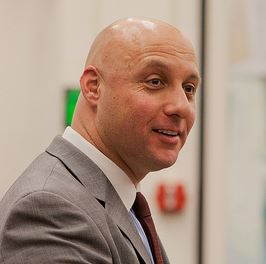Michael Lugo, owner of Michael’s Tasting Room in St. Augustine, Florida, recently received a note from a customer stating that the Christmas music playing in his restaurant was “offensive” and too “religious.”
Meanwhile, across the pond, Hilary Penning, owner of Organic Kitchen in London, England, was heavily criticized by some of her customers and by the popular website for mothers, Mumsnet. They faulted Penning for her new policy of prohibiting children under 5 in her restaurant.
Both of these are examples of a certain kind of popular arrogance when it comes to other people’s private property.
The free-market concept is simple — private property owners should be able to preside over whatever policies they want. Restaurant owners do not owe anyone a restaurant experience. They cannot “hurt” customers by turning them away or playing music, because the customers have no right to be on another person’s property.
Customer Freedom and Owner Freedom
Nor do restaurant owners force any customer to enter their establishments.
I have never been to a restaurant because I was hit over the head with a bat, dragged in, and then awakened to a meal placed in front of me at a table. In my experience, every time I have eaten a meal at a restaurant it has been because I have voluntarily chosen to walk in to the establishment, sit down, and order the food. If I didn’t like the ambience or anything else, I could have walked out. I have never eaten at a restaurant where I was chained to the table and forced to stay.
Lugo was playing Christian music during the Christmas season —shocking, I know. But if Lugo wanted to play Christian music (or music from any other religion) every day of the year, that is his right, because it is his establishment. He is not forcing it on anyone else.
Penning has justified her child policy by explaining that many customers had been complaining that they could not enjoy their meal because of the loud and ill-mannered behavior of young children. Penning has also argued that because her restaurant is small, having young children running around or baby strollers bogging down the limited space is a safety hazard for the food servers and for the customers.
That is all fine and well, but she does not have to justify her policy. As a private property owner, she should even be able to be harsh and say, “I don’t like children so do not bring them inside my restaurant.” Period.
Incidentally, Penning is a mother herself, so I don’t think her motivation is that she hates children. Rather, she is making a business decision that takes the majority of her customers into consideration.
Again, I will repeat that Penning does not owe anyone a restaurant experience or a meal. Nor does she force her restaurant on anyone. People can go to restaurants that allow children, or they can cook for their own kids, or they can be entrepreneurial and open their own “child-friendly” restaurants.
As a business owner, Penning should be able to determine whatever policy she believes is best. Keep in mind, if she is wrong — if child-welcoming restaurants will bring in more happy customers just as safely as her child-free one — she will suffer the wrath of the market, and that is fine.
But when people get angry or offended at a business owner for their policies, they often act as if it was their right to eat or enjoy the property of another person. Instead, in a free market, individuals can vote with their money and just frequent the businesses they support and withhold their money from businesses with which they disagree.
In a free market, individuals can vote with their money”]
Individuals have a right to play whatever music they want in their own homes when they host a party and they have the right to put “no children please” on their wedding invitations. This same policy should hold true for private business owners, who should have the autonomy to determine their business policies.



